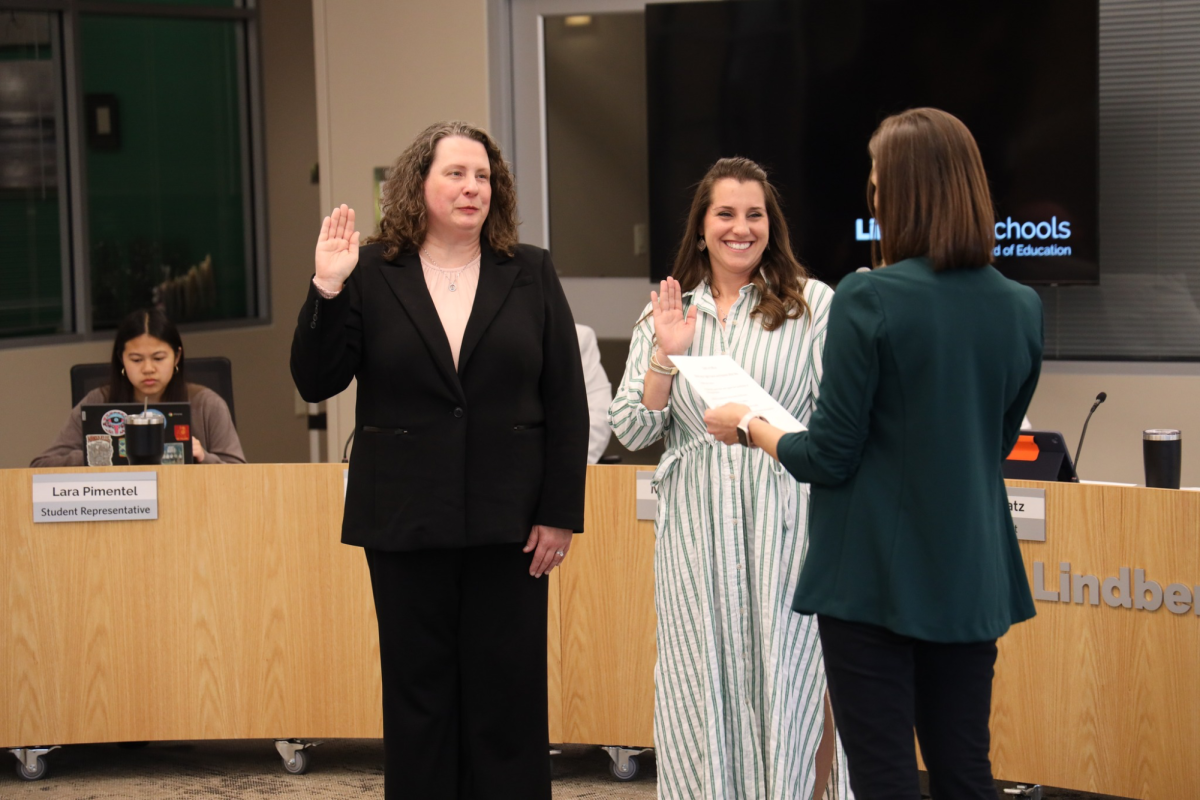While Crestwood stores formerly classified as service businesses still will pay a service-business fee for their licenses, Mayor Roy Robinson last week promised to form a committee to study those fees and a possible “permanent grandfather” clause.
Aldermen voted 7-0 May 8 to extend a grandfather clause one more year for businesses formerly classified as service businesses. Ward 1 Alderman Richard Bland was absent.
The clause extends the grandfather period for the 2007-2008 tax year for these businesses’ fees, which are based on square footage. In the spring of 2006, aldermen voted to accept changes proposed by former City Clerk Kimberly Cottle to the city’s business-license code, including the elimination of the service-business classification.
Because of complaints of dramatic fee hikes from owners of businesses that previously had been classified as service, aldermen included the grandfather provision to tax those businesses based on their square footage instead of gross receipts. The city conducts its business-license review period in May and June.
Aldermen at that time also passed the changes with the intention of forming a committee to further study the city’s business-license fees.
But Robinson said because of some staffing changes and difficulty finding business representatives to participate, the group was never formed.
“There were changes in the staffing,” Robinson said. “We have a new city clerk. The one that started all this is gone. We had a committee set up to go over it with the business community. We couldn’t get the business people to meet. So there’s been outside problems of getting on schedule. And there was no way that we could do this in time for this season’s license period. And hopefully when it all ends, we’re not losing the money. We just haven’t got the process worked out.
“And I’m going to tell you tonight I guarantee you by next year we will have a process established and it will be fair and it will be equitable and it will be what’s right for this community. So we will work. I will make sure we work on it because I will work on it personally along with other members of the staff and any other aldermen that’s got the time to come in and listen when we have the meetings and talk about it. We’re going to get something established. I promise you that.”
The mayor also said he would like to see a permanent grandfather clause for all businesses that were once classified as service.
“I think eventually we’ll make this a permanent grandfather for the businesses in our community,” Robinson said. “This thing got completely out of hand when it was presented … I was told that there would be no effect whatsoever by changing this designation. Well, needless to say, we ran into a real buzz saw and people were definitely affected. What we need to do is to grandfather all the present businesses in our community. And if there’s a change to this designation or whatever it is, it should apply to the new ones. And the more I get into this, I think this board needs to establish a cap so even when we do designate some business under a new term and it costs them …
“We have to look at this seriously. We’re trying to bring business into the community, not run it out. And if I were a business that was paying $300 a year for a license and, all of a sudden, they hit me with a business license for $10,700, I’d be packing my bags and moving elsewhere because I’m sure it’s cheaper in some of the other surrounding communities. So, this is something serious, and we need to address it. But we need to extend this thing for another year so we can get a handle on it and get it right.”
Although he voted for the extension of the grandfather clause, board President Jerry Miguel of Ward 3 questioned the effect of freezing the rate for former service businesses after voters in 2005 approved a license fee hike for merchant businesses from $1 per $1,000 of gross receipts to $1.25 per $1,000 of gross receipts.
“I need some help here,” Miguel said. “In 2005, the voters approved an increase in the merchant-license revenue from $1 to $1.25 … I have no comprehension of what that means. I have absolutely no idea what that means in dollars and cents …
“But that apparently applies to all business in the city except for this group, which is labeled as service businesses. And I’m not really sure what a service business is, although I probably should. So I’m really kind of vague on what’s happening here. But my sense is that one set of group of businesses has had this particular tax increase … Yet we’re grandfathering this other group of businesses at no increase and we’ve done it for a year and now we’re going to do it for another year.”
Cottle wrote in an April 2006 memo to City Administrator Frank Myers that the city would be wise to eliminate the service-business classification not only because such businesses often paid less for business licenses, but because the classification is rarely included in other Missouri cities and difficult to define.
“I have researched the codes and definitions used by many Missouri municipalities,” Cottle wrote. “This special class is no longer used in any other municipal code I have found, nor do state definitions include such a special class.
“The list of service businesses is rather vague and also includes ‘other similar businesses or activities of business.’ Since the time when these classifications were adopted, professions and business practices have evolved to include more service-oriented businesses, which are not necessarily limited to one type of service. The unusual sub-classification ‘service business’ often makes it difficult to easily classify many of today’s businesses.
“Finally, service businesses pay the license tax on a different scale than all other Crestwood businesses, including service occupations. This special class pays much less than other service-oriented trades because their license tax is based on the value of the business’ personal property or the number of employees they have.”
Until last year’s revisions to the business code, it had been mostly unchanged since 1975.
Myers said based on conversation with Cottle last year, he believes businesses were coming into the city and trying to take advantage of a business classification that was difficult to define.
“We were having businesses, as I understand from talking to the previous city clerk when this was discussed and debated, try to slip into that service-business category so that they would pay a lot less,” Myers said. “So the intent was to try to close that loophole and tighten it up. In the process of closing that loophole and trying to tighten it up, we’ve had businesses that have been in the community a long period of time all of a sudden see their business-license fee in-creasing 10 to 20 times.
“And they were pointing to cities like Sunset Hills and Kirkwood saying ‘I can relocate my business here and pay a whole lot less in a business-license fee.’ And it was in the context of that type of discussion that the Board of Alder-men elected to say: ‘Look, maybe there were some problems with the way our business code was previously. But the way in which we attempted to fix it has created some other problems and let’s just step back, let’s grandfather so businesses that were service businesses that now under the amended code are gross-receipts businesses, they’re not adversely impacted.'”
Miguel said he, too, would like to see a committee formed and reiterated that the annual revenue collected from the city’s business-license fees is an amount worth considering.
“It’s not my intent to go out and tax an inordinate amount,” Miguel said. “But we are talking about some significant dollars here … From looking at this number some time ago, the city collects about $800,000 (per year) in merchant-license fees. So this is a significant revenue item here. And my concern is that, to me, this is a very significant, very important issue and we have not addressed it …
“There’s probably no way around deferring it at this time. There probably isn’t time to do justice to and go through a fair review of this matter. But I think this is something that needs to be addressed, and it needs to be addressed promptly. And it is an important issue, and we cannot afford to slip this off any further.”




















